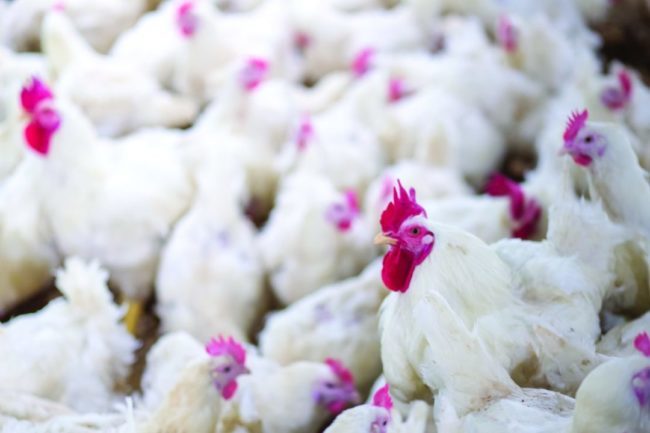LANSING, MICH. – After an investigation by the Michigan Department of Agriculture and Rural Development (MDARD), the Michigan State University Veterinary Diagnostic Laboratory confirmed highly pathogenic avian influenza (HPAI) in a commercial poultry facility in Muskegon County, Michigan’s first case of HPAI in a commercial poultry operation.
The highly contagious virus can be spread in various ways from flock to flock, including by wild birds, through contact with infected poultry, by equipment, and on the clothing and shoes of caretakers. Authorities quarantined the premises to protect other flocks in the state and the birds have been depopulated to prevent disease spread. These efforts also help to ensure the safety and integrity of the commercial food supply.
“Before Michigan’s first detection of HPAI in backyard poultry in late February, MDARD has been preparing for all types of outbreak scenarios, including within a commercial setting, allowing the department to take swift action in partnership with the producer,” said Nora Wineland, DVM, and veterinarian for the state. “The department has already identified a control area and surveillance zone to monitor for and prevent further spread of the virus. We will continue to ask every poultry owner, whether a backyard owner or commercial grower, to take preventative actions to help stop the spread of HPAI. It’s a team effort to defend the flocks in Michigan.”
“Michigan’s family poultry farmers take the health of their flocks and neighbor farms seriously,” said Allison Brink, executive director of Michigan’s Allied Poultry Industries. “By working together to limit the spread of HPAI, Michigan farmers are ensuring there is no disruption in the local turkey, chicken, or egg supply.”
The US Centers for Disease Control and Prevention said the public health risk associated with these avian influenza detections remains low, and no birds or bird products infected with HPAI will enter the commercial food chain. As a reminder, people are encouraged to properly handle and cook all poultry and eggs.
“While human health risk is low regarding HPAI, Michigan’s 45 local health departments are working in conjunction with our state partners to monitor those at higher risk for exposure and help protect overall public health,” said Norm Hess, executive director, Michigan Association for Local Public Health. “Local health officers are an essential part of emergency response, including HPAI, by monitoring and assisting responders to limit potential spread.”
For a few backyard birds or a large commercial flock, Michigan poultry producers can follow a few key steps to protect the health and vitality of Michigan’s domestic birds:
- Prevent contact between domestic and wild birds by bringing them indoors or ensuring their outdoor area is fully enclosed.
- Wash your hands before and after handling birds as well as when moving between different coops.
- Disinfecting boots and other gear when moving between coops.
- Do not share equipment or other supplies between coops or other farms.
- Cleaning and disinfecting equipment and other supplies between uses. If it cannot be disinfected, discard it.
- Using well or municipal water as drinking water for birds.
- Keep poultry feed secure to ensure there is no contact between the feed/feed ingredients and wild birds or rodents.
MDARD said the agency continues to work diligently with local, state, and federal partners to quickly respond to reports of sick or dead domestic birds to best mitigate the spread of HPAI.


